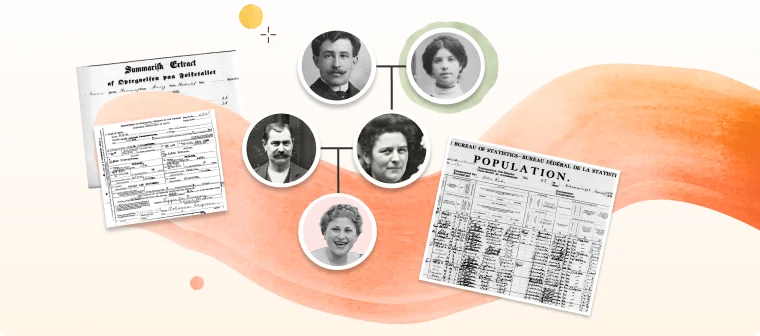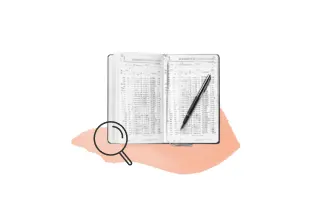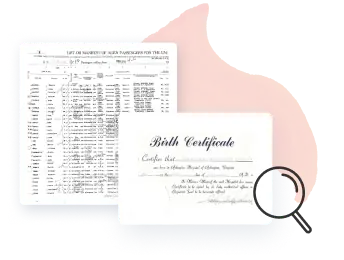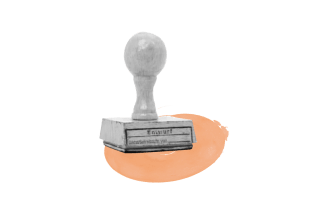Name Directory by Last Name: Last Names Starting with Ra
Explore millions of names to discover rich genealogical details and uncover your family's history
Enter a name to research
Last name meanings and origins
- Ray
The surname Ray has its historical roots primarily in England and Scotland, with origins dating back to the medieval period. It is derived from the Old French word "rei," meaning "king," which was brought to England by the Normans after the Conquest of 1066.
- Rasmussen
The surname Rasmussen has its historical roots in Scandinavia, particularly in Denmark and Norway, where it is derived from the given name "Rasmus," itself a diminutive of "Erasmus," which means "beloved" in Greek. The surname first appeared in the medieval period, with its earliest records dating back to the 14th century.
- Randall
The surname Randall has its historical roots in medieval England, deriving from the Old Norse personal name Rǫndulfr, which means "shield wolf." The name was introduced to England by Viking settlers and became popular in the Anglo-Saxon period. Over time, Randall evolved into a surname associated with various occupations, particularly in the context of land ownership and agriculture, as many bearers of the name were likely involved in farming or local governance.
- Ramirez
The surname Ramirez has its roots in the Iberian Peninsula, particularly in Spain, where it is derived from the given name "Ramiro," which itself comes from the Gothic elements "ragin" (counsel) and "meri" (famous). The surname first appeared in the medieval period, with records dating back to the 12th century.
- Raymond
The surname Raymond has its historical roots in the Old High German name "Raginmund," which translates to "counsel protection" or "wise protector." It first appeared in medieval Europe, particularly in regions that are now part of modern-day France and Germany, around the 9th century. Over time, the name evolved into various forms, including "Raimund" and "Raymond," as it spread across different cultures.
- Ramsey
The surname Ramsey has its historical roots in Scotland, particularly associated with the region of Fife and the town of Ramsey in the Isle of Man. The name is derived from the Old Norse personal name "Rǫmarr," meaning "raven," combined with the Old English "ēg," meaning "island" or "river island." The earliest recorded instances of the surname date back to the 12th century, with notable figures such as the Ramsey family of Dalhousie, who were prominent landowners and played significant roles in Scottish history.
- Ramos
The surname Ramos has its historical roots in the Iberian Peninsula, particularly in Spain and Portugal, where it is derived from the given name "Ramón," which itself comes from the Germanic name "Raginmund," meaning "wise protector." The surname first appeared in the medieval period, with records dating back to the 13th century. It was often associated with individuals who held positions of importance within their communities, such as landowners or local leaders.
- Randolph
The surname Randolph has its historical roots in medieval England, deriving from the Old Norse personal name Rǫndulfr, which combines elements meaning "shield" and "wolf." The name first appeared in written records in the 12th century, particularly in the form of "Randulf" or "Randal." Over time, it evolved into various forms, including Randolph, which became more common in the 13th century. The surname is often associated with nobility and landownership, as many bearers of the name held significant social roles, particularly in the regions of England where they were landholders or involved in local governance.
- Rankin
The surname Rankin has its historical roots in Scotland, deriving from the personal name "Rank," which itself is a diminutive of the Old Norse name "Rǫgnvaldr," meaning "counsel power." The surname first appeared in written records in the 13th century, particularly in the regions of Ayrshire and Lanarkshire. Over time, the Rankin family became associated with various occupations, including farming and landholding, reflecting the agrarian society of medieval Scotland.
- Ramsay
The surname Ramsay has its historical roots in Scotland, with origins tracing back to the medieval period. The name is derived from the Old English elements "ram," meaning a male sheep, and "eg," meaning an island or a piece of land surrounded by water.
- Ramires
The surname Ramires has its historical roots in the Iberian Peninsula, particularly in Spain and Portugal, where it is believed to have originated during the Middle Ages. The name is derived from the given name Ramiro, which itself comes from the Gothic elements "ragin," meaning "counsel," and "meri," meaning "famous." As a patronymic surname, Ramires indicates lineage, suggesting "son of Ramiro." Over time, individuals bearing this surname were often associated with various occupations, including roles in the military and administration, reflecting the feudal structure of medieval society.
- Ralston
The surname Ralston has its historical roots in Scotland, particularly in the region of Renfrewshire. The name is believed to derive from the Old English personal name "Rædwald," combined with the Old Norse word "tun," meaning "farm" or "settlement." This suggests that the original bearers of the surname may have been associated with a specific location or estate, possibly indicating a role as landowners or farmers.
- Rand
The surname Rand has its historical roots primarily in England, where it is believed to have originated from the Old Norse personal name "Randi," which means "shield" or "rim." The name first appeared in written records during the medieval period, particularly in the 13th century. Over time, the surname became associated with various occupations, including those of landowners and farmers, reflecting the agrarian society of the time.
- Rasmusen
The surname Rasmusen has its historical roots in Scandinavia, particularly in Denmark and Norway, where it is derived from the given name Rasmus, itself a variant of the Latin name Erasmus, meaning "beloved" or "esteemed." The surname likely first appeared in the late Middle Ages, around the 14th to 16th centuries, as a patronymic surname, indicating "son of Rasmus." This naming convention was common in Nordic cultures, where surnames often reflected the father's first name. Over time, individuals bearing the surname Rasmusen may have been associated with various occupations, including farming and trade, which were prevalent in rural Scandinavian societies.
- Rapp
The surname Rapp has its historical roots primarily in Germany and is derived from the Middle High German word "rap," which means "to seize" or "to snatch." It is believed to have originated as a nickname for someone who was quick or agile, possibly in a physical sense or in terms of wit. The surname first appeared in the medieval period, with records indicating its presence in various regions of Germany.
- Rae
The surname Rae has its historical origins rooted in Scotland, where it is believed to derive from the Gaelic word "rath," meaning "a fort" or "a dwelling." The name first appeared in written records in the 13th century, often associated with the lands and families of the Scottish Highlands. Over time, the surname became linked to various occupations, particularly in agriculture and land management, reflecting the agrarian lifestyle of early Scottish society.
- Ralph
The surname Ralph has its historical roots in Old Norse and Old English, deriving from the given name "Rædwulf," which means "counsel wolf." This name was brought to England by Viking settlers and became popular in the Anglo-Saxon period. The surname Ralph began to appear in written records around the 12th century, particularly in regions with significant Norse influence, such as Yorkshire and Lincolnshire.
- Raines
The surname Raines has its historical roots in England, with origins that can be traced back to the medieval period. It is believed to be derived from the Old French name "Renaud," which means "ruler's advisor" or "counselor," reflecting the social roles of those who bore the name.
- Radford
The surname Radford has its historical origins in England, particularly in the region of Nottinghamshire, where it is believed to have first appeared in the medieval period. The name is derived from the Old English elements "read," meaning "red," and "ford," referring to a river crossing.
- Ransom
The surname Ransom has its historical roots in medieval England, deriving from the Old French term "rançon," which means "ransom" or "redemption." It first appeared in the 12th century, likely as a nickname for someone who was involved in the payment of ransom or perhaps for a person who had been captured and subsequently freed. Over time, the surname evolved to denote individuals who may have held roles related to negotiation or mediation, particularly in contexts involving hostages or prisoners.
- Rawson
The surname Rawson has its historical roots in England, with its earliest appearances dating back to the medieval period. It is believed to be a locational surname derived from various places named Rawson, particularly in Yorkshire.
- Rasmusdatter
The surname Rasmusdatter has its roots in Scandinavian naming traditions, particularly in Denmark and Norway, where it is derived from the given name Rasmus, which itself comes from the Latin name Erasmus, meaning "beloved." Historically, surnames in this region often indicated lineage, with "datter" signifying "daughter of," thus Rasmusdatter would translate to "daughter of Rasmus." This patronymic system was prevalent in the Nordic countries until the late 19th century, when more fixed surnames became common. The surname reflects a familial connection and social structure, where individuals were often identified by their father's name, indicating both lineage and social roles within the community. Culturally, variations of the surname Rasmusdatter can be found across different Scandinavian regions, with similar forms appearing in Icelandic and Swedish contexts, such as Rasmusdóttir in Iceland, which follows the same patronymic convention.
- Rayner
The surname Rayner has its historical roots in England, deriving from the Old Norse personal
- Rainey
The surname Rainey has its historical roots primarily in England and Ireland, with its earliest appearances dating back to the medieval period. The name is believed to be derived from the Old French personal name "Renaud," which means "ruler's advisor" or "wise ruler," introduced to England after the Norman Conquest of 1066.
- Rathbone
The surname Rathbone has its historical roots in England, with its earliest appearances traced back to the medieval period. The name is believed to derive from the Old English elements "rath," meaning "counsel" or "advice," and "bona," which translates to "a good place" or "a dwelling." This suggests that the original bearers of the surname may have been associated with a location known for its counsel or governance, possibly indicating a role in local leadership or advisory capacities.
- Rawlings
The surname Rawlings has its historical roots in England, with origins tracing back to the medieval period. It is derived from the given name "Rawlin," which itself is a diminutive of "Ralph," meaning "wolf counsel" in Old Norse.
- Rayburn
The surname Rayburn has its historical roots in England, with its earliest appearances dating back to the medieval period. The name is believed to be derived from a combination of Old English elements, where "ray" may refer to a "roe deer" or "rays" of light, and "burn" signifies a stream or brook.
- Ratliff
The surname Ratliff has its historical origins in England, with roots tracing back to the medieval period. It is believed to be derived from the Old Norse personal name "Rǫðulfr," which means "famous wolf." The name likely evolved through various spellings and pronunciations over the centuries, reflecting the linguistic changes in the region.
- Rader
The surname Rader has its historical roots primarily in Germany, where it is believed to have originated as a variant of the name "Rader," which is derived from the Middle High German word "rader," meaning "wheel." This connection suggests that the name may have been associated with individuals who were wheelwrights or involved in the production of wheels, a vital occupation in medieval society. The surname likely first appeared in the 13th century, with its bearers often linked to specific trades or crafts, reflecting the importance of mobility and transportation in that era.
- Rains
The surname Rains has its historical roots in England, where it is believed to have originated from the Old French word "raing," meaning "rain." This suggests a connection to weather or geographical features, possibly indicating that the early bearers of the name lived in areas characterized by significant rainfall or near water sources. The surname first appeared in historical records during the medieval period, with variations in spelling such as "Raynes" and "Raines" noted in various documents.
- Radcliffe
The surname Radcliffe has its historical origins in England, specifically deriving from the Old English elements "read," meaning red, and "clif," meaning cliff or bank. This suggests that the name originally referred to someone who lived near a red cliff or bank, likely in a geographical area characterized by such features.
- Rafferty
The surname Rafferty has its roots in Ireland, deriving from the Gaelic name "O'Rabhartaigh," which means "descendant of Rabhartach." The name Rabhartach itself is believed to be derived from the word "rabhar," meaning "a prosperous or wealthy person." The surname first appeared in historical records in the 12th century, particularly in the province of Ulster, where the O'Rabhartaigh clan was prominent. Over time, the Raffertys were known for their roles as landowners and warriors, often associated with the Gaelic nobility.
- Ramey
The surname Ramey has its historical roots in medieval France, deriving from the Old French personal name "Rame," which itself is believed to be a diminutive of "Raimond," meaning "wise protector." The surname first appeared in written records in the 12th century, particularly in regions such as Normandy and Picardy. Over time, Ramey evolved as families adopted surnames based on their occupations, social roles, or geographical features.
- Ratcliffe
The surname Ratcliffe has its historical origins in England, specifically deriving from the Old English elements "ræd," meaning "counsel," and "clif," meaning "cliff" or "slope." The name is believed to have first appeared in the medieval period, with records dating back to the 13th century. Ratcliffe was often associated with geographical features, indicating a location near a cliff or steep slope, which was common in the naming conventions of the time.
- Rauch
The surname Rauch has its historical origins in the German-speaking regions of Europe, particularly in Germany and Austria. The name is derived from the Middle High German word "rūch," which means "smoke" or "mist," suggesting a possible connection to geographical features such as smoky landscapes or areas with fog.
- Rau
The surname Rau has its historical roots primarily in Germany, where it is believed to have originated from the Middle High German word "ruo," meaning "to clear" or "to make room." This suggests that the name may have been associated with individuals who were involved in land clearing or farming activities, reflecting the agrarian lifestyle of early Germanic societies. The surname can also be linked to geographical features, as "Rau" may refer to a rough or rugged terrain, indicating that the original bearers of the name likely lived in or near such landscapes.
- Ragan
The surname Ragan has its historical roots primarily in Ireland, where it is believed to derive from the Gaelic name "O'Raghaill," meaning "descendant of Raghaill." The name Raghaill itself is thought to be derived from the word "raghal," which translates to "a descendant of the ruler" or "a powerful one." The O'Raghaill clan was historically associated with the province of Ulster, particularly in counties Antrim and Down. Over time, the surname evolved in spelling and pronunciation, with variations such as Ragan, Regan, and O'Regan appearing in different regions.
- Raleigh
The surname Raleigh has its historical roots in England, particularly associated with the town of Raleigh in Devon. The name is derived from the Old English elements "raed," meaning "reed," and "leah," meaning "clearing" or "meadow," suggesting a geographical feature characterized by a meadow where reeds grow.
- Raynor
The surname Raynor has its historical roots in England, deriving from the Old French personal name "Reinor," which itself comes from the Germanic elements "ragin," meaning "counsel," and "hard," meaning "brave" or "hardy." The name first appeared in records during the Norman Conquest of England in the 11th century, as many surnames were adopted following this significant cultural shift. Over time, the surname Raynor became associated with various occupations, particularly in agriculture and land management, reflecting the agrarian society of medieval England.
- Rath
The surname Rath has its historical origins rooted in various European cultures, particularly in Germany and Ireland. In German, the name is derived from the Middle High German word "rat," meaning "counsel" or "advice," which suggests that the original bearers of the name may have held roles as advisors or counselors in their communities.
Start your family tree for free
Start by entering a few names and MyHeritage will do the rest, so you can make meaningful discoveries

Explore historical records

Explore 1,810,427,080 census and voter list records to get a detailed snapshot of your ancestors' lives. Discover names, ages, occupations, family relationships, residences, and much more.

Explore 4,647,704,406 birth, marriage, and death records. Uncover valuable details about major family milestones and find names, dates, places, occupations, and residences of your ancestors and relatives.

Search 266,544,192 military records and discover the stories of courage and resilience in your family history. Military records include enlistment dates, ranks, locations, and even physical descriptions.
Embark on a fascinating journey to discover your family history

Start by adding a few names. Myheritage's automatic matching technology will help you expand your family tree and delight you with new discoveries.

Reveal your ethnic origins and find relatives you never knew existed with our simple DNA kit.

Dive into MyHeritage's international collection of 36.7 billion historical records - start with a name of an ancestor and see what our collections can reveal about your family history.
About MyHeritage

MyHeritage is the leading global platform for family history. It enriches the lives of people worldwide by enabling them to uncover more about themselves and where they belong. With a suite of intuitive products, billions of historical records, an affordable at-home DNA test, and AI-powered photo tools, MyHeritage creates a meaningful discovery experience that is deeply rewarding. The MyHeritage platform is enjoyed by tens of millions of people around the world who treasure and celebrate their heritage.








